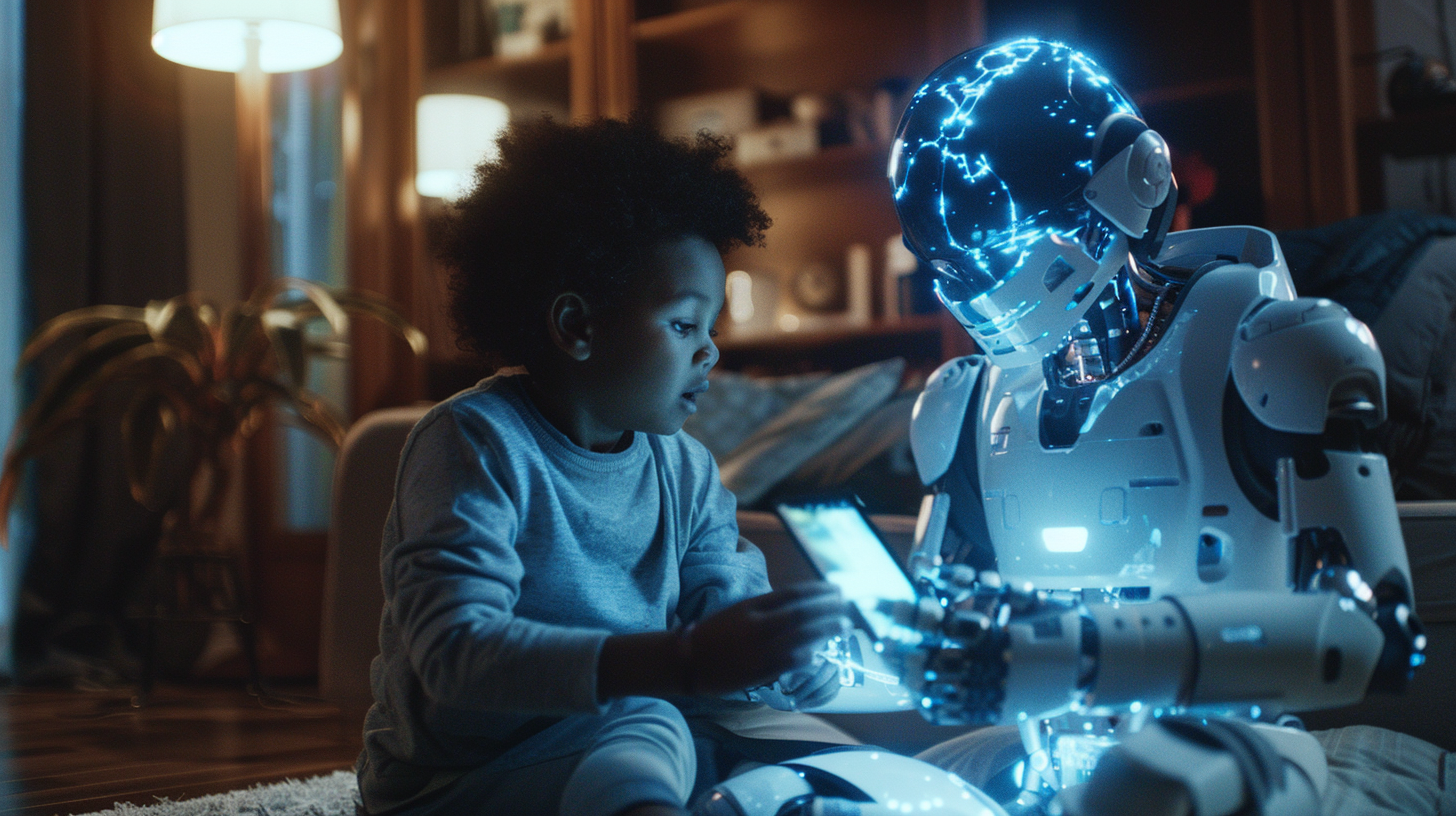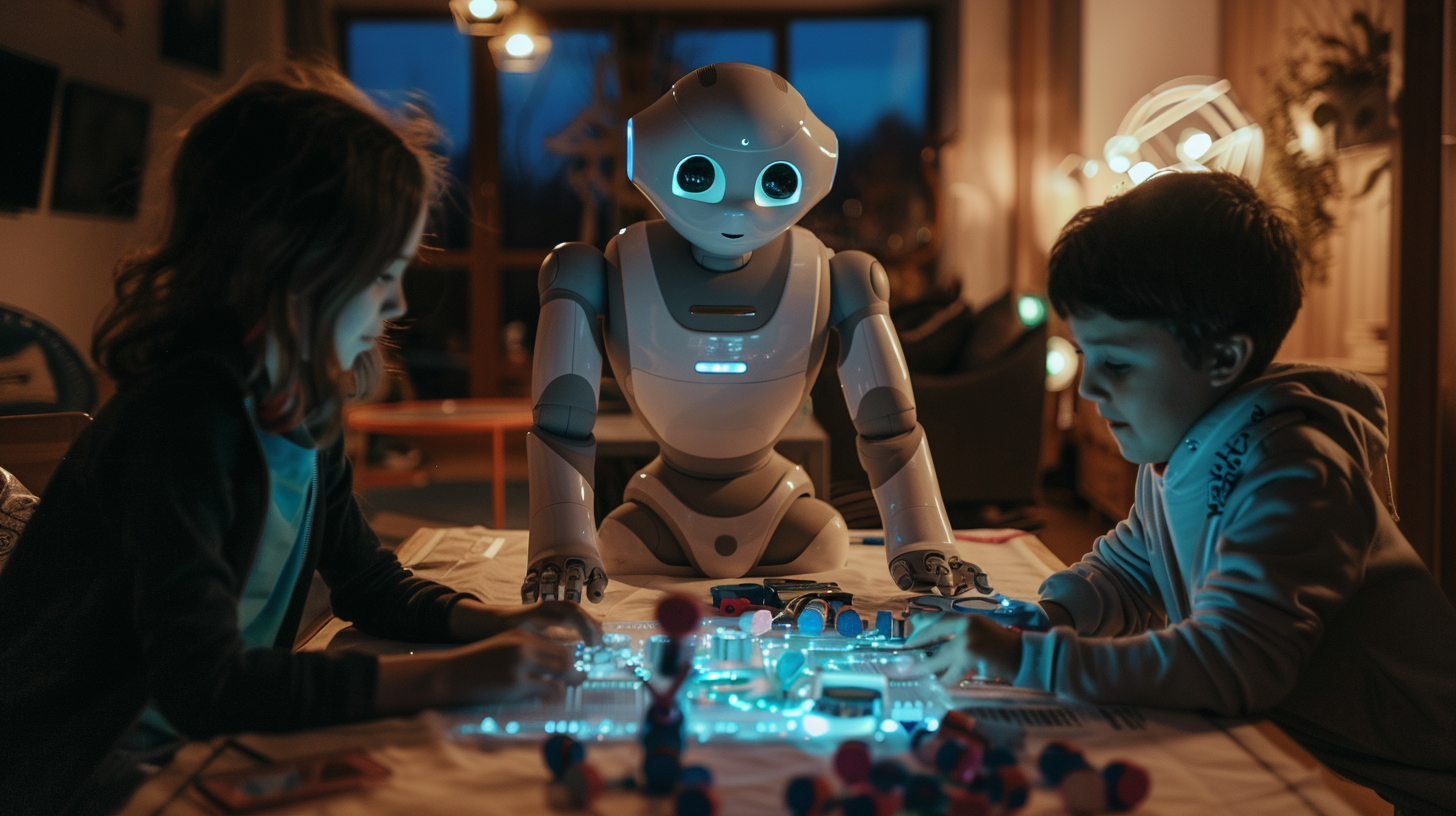- AI is here to stay: While AI isn’t a new concept, recent advancements have significantly expanded its capabilities and accessibility. It’s essential for parents to embrace AI rather than shy away from it. By familiarizing yourself with AI tools and experimenting with them alongside your child, you can equip them to use these technologies wisely and responsibly.
- Be critical: Generative AI can create impressive content, but it lacks the ability to critically assess information. Encourage your children to question the credibility of AI-generated content, emphasizing the need for critical thinking skills. Use AI art generators to spark discussions about biases, stereotypes, and the importance of questioning what they see online.
- Watch out for chatbots: Chatbots, like Replika, can engage children in conversations that may not always be appropriate or moderated. It’s crucial to remind your children that chatbots are machines, not humans, and they should approach them with caution. Discuss the importance of privacy, especially regarding images and videos uploaded online, as AI can process this data.
By educating your children about AI, fostering critical thinking, and promoting responsible use of technology, you can help them navigate and thrive in a world where AI plays an increasingly significant role. Embrace the potential of AI as a learning tool while emphasizing the importance of digital literacy and online safety.
3 Important Things Parents Should Teach Their Kids About AI
Artificial Intelligence (AI) is becoming increasingly prevalent in our daily lives, and it is essential for parents to educate their children about the opportunities and potential risks associated with this technology. Here are three crucial things parents should teach their kids about AI:
1. Understanding the Permanence of AI
AI technology is here to stay and will continue to play a significant role in various aspects of society. Parents should help children understand that AI is not a passing trend but a technology that will become more integrated into our lives. By familiarizing themselves with AI tools and applications, children can learn to use them responsibly and effectively.
2. Developing Critical Thinking Skills
It is crucial for children to be critical of the content generated by AI tools. While AI can produce impressive outputs such as images and stories, it lacks the ability to assess information critically. Parents should guide their children to question the credibility of AI-generated content, analyze biases, and evaluate sources. By promoting critical thinking, children can distinguish between reliable and misleading information.
3. Ensuring Responsible Interaction with Chatbots
Chatbots are AI-powered programs designed to simulate human conversations. Parents should caution children about engaging extensively with chatbots, as they may lack moderation and expose children to inappropriate content. It’s essential to emphasize that chatbots are machines and do not possess human values or emotions. Children should be mindful of the information they share with chatbots and understand the limitations of these interactions.
Additional Considerations for Parents
Aside from text-based AI, parents should also educate their children about the implications of using AI for images, videos, and audio. Children need to be aware that content uploaded online, including images, can be accessed, processed, and stored by AI systems. Discussing privacy concerns and emphasizing the importance of safeguarding personal information is crucial in the digital age.
By fostering open dialogues and providing oversight, parents can empower their children to leverage AI technology responsibly and benefit from its educational and interactive capabilities.

| Key Points | Details |
|---|---|
| AI is here to stay | Artificial intelligence has rapidly expanded in accessibility and usability, becoming widely used in daily life. |
| Be critical | Children need to develop critical thinking skills when interacting with generative AI to discern credibility and potential biases. |
| Watch out for chatbots | Parents should be cautious of chatbots that can simulate human conversations and may contain inappropriate content, guiding children to understand the limitations of AI interactions. |
| Images, videos, and audio also matter | Reminder to children about the implications of sharing images and videos online, as AI can process and store this data, affecting privacy and identity. |



